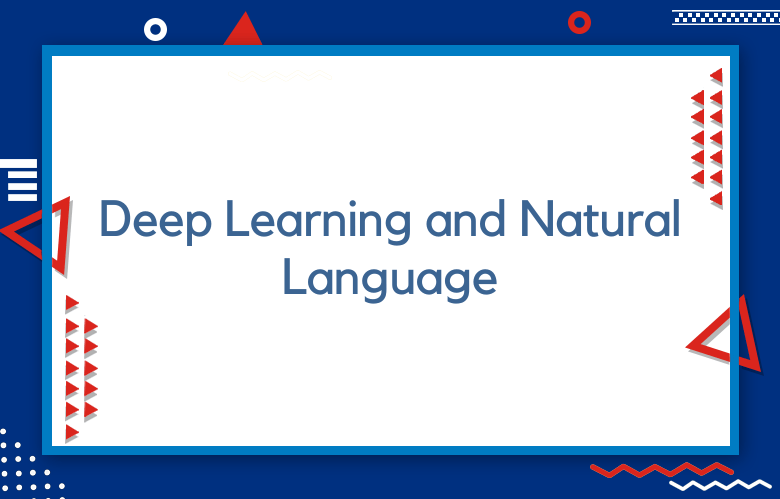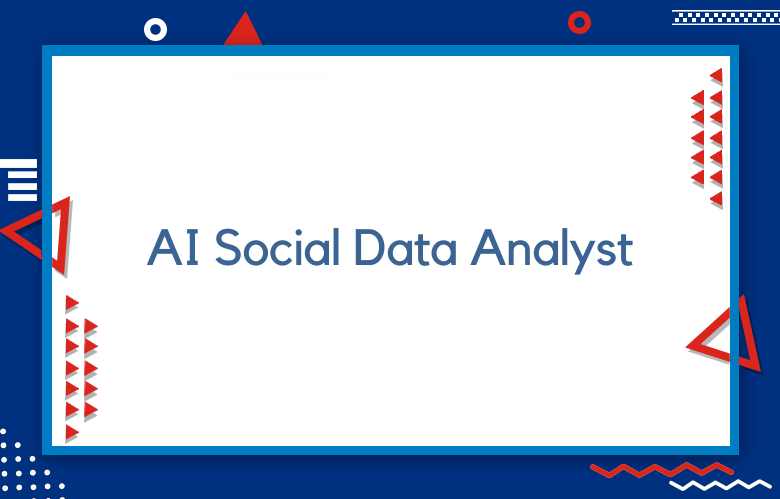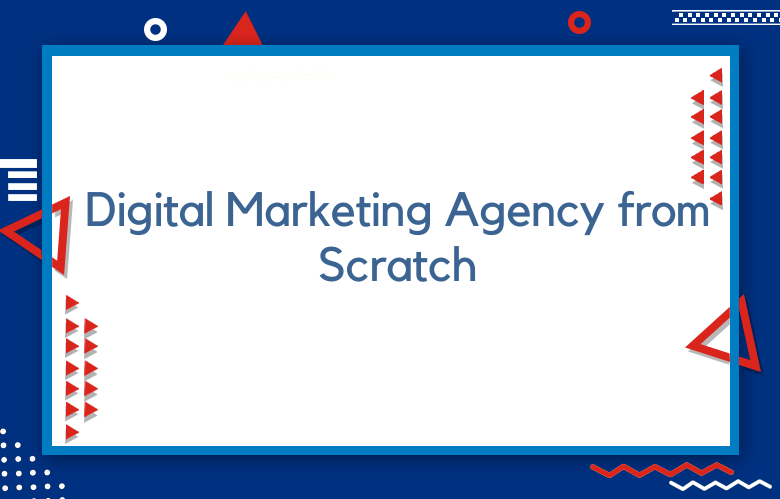Deep Learning and Natural Language Processing for Marketing

Marketing has always been about understanding the preferences and needs of the customer to provide better products or services. In the past, the key to unlocking this information was through traditional market research methods such as surveys, focus groups, and customer reviews.
However, the world of marketing is continually evolving. With the advent of deep learning and natural language processing (NLP), it is now possible to gain deeper insights into consumer behavior and preferences.
We will explore how deep Learning and NLP revolutionize marketing, providing marketers with new tools to understand and engage with customers.
What is Deep Learning?
Deep Learning is the most advanced form of AI. It uses neural networks, a series of algorithms inspired by the human brain, to learn from data.
These networks can be trained to recognize patterns and make predictions based on the input data. Deep Learning is a sophisticated technology that requires large amounts of data to achieve the best results.
This is one of the reasons why it has become so popular in marketing. By analyzing large consumer data sets, deep Learning can identify patterns humans might miss. This helps marketers develop more effective strategies that can better anticipate customer behavior.
What is Natural Language Processing?
Natural Language Processing is a way for computers to understand and interpret human language. It uses algorithms to analyze text and speech and extract meaningful information.
This technology has been used to develop applications such as speech recognition, chatbots, and text analysis.
In marketing, NLP can analyze social media conversations, customer reviews, and other customer feedback forms. This can help marketers gain valuable insights into customer behavior and preferences.
Marketers can develop highly targeted campaigns that speak directly to their audience by understanding customer sentiments.
Using Deep Learning and Natural Language Processing for Better Marketing
In today’s world, marketing has become essential to every business strategy. With the ever-growing demand for personalized customer experiences, traditional marketing methods are no longer effective.
This is where deep learning and natural language processing (NLP) comes into play.
Deep learning algorithms enable machines to learn and analyze vast amounts of data, and NLP allows them to understand human language.
Together, they can help marketers tailor their campaigns to meet the needs and interests of their target audience. We will explore these technologies in more detail.
The Magic of Deep Learning and Natural Language Processing in Marketing
Marketing has undergone a paradigm shift in the past few years. As technology evolves, marketing strategies have developed simultaneously, and the rise of artificial intelligence (AI) is transforming the industry in unprecedented ways.
With the advent of deep learning and natural language processing, companies can now analyze large data sets, extract essential insights, and develop highly targeted marketing plans.
An increasing number of marketers are turning to these AI techniques to stay ahead of the competition and win the trust of their customers.
We’ll see how deep learning and natural language processing work in marketing and the benefits they bring to the table.
Understanding Consumer Sentiments Through NLP
Natural language processing is a powerful tool for analyzing large volumes of text data to reveal customer sentiments and opinions.
Marketers can use NLP to scour social media platforms, review sites, and even email correspondences to gain insights into how customers feel about their products. This can help marketers adjust their messaging or approach to meet customer needs better.
Optimizing Content for SEO Using Deep Learning
Deep Learning is a subset of machine learning that involves training computers to recognize patterns in data. This technology is increasingly used in marketing to develop and optimize content for search engine optimization (SEO).
By leveraging deep Learning, marketers can develop new content tailored to high-impact keywords to capture more traffic from search engines. This can lead to increased visibility and improved ROI for marketers.
Personalizing the Customer Experience With Deep Learning
Deep learning techniques can be used to personalize the customer experience in a previously impossible way.
By analyzing demographic data, browsing history, purchase history, and other data sets, deep learning algorithms can predict future purchase intent and make recommendations based on the customer’s behavior.
This creates a personalized customer journey that makes them feel valued and understood by the brand, ultimately increasing customer loyalty.
Chatbots for Personalized Customer Engagement
Chatbots are another powerful tool that leverages deep Learning and NLP for customer engagement.
Chatbots can simulate human conversations and provide personalized recommendations and customer support, creating a more interactive and engaging experience.
Chatbots can help to reduce response times, improve customer satisfaction, and provide a more efficient solution for routine queries.
Enhanced Predictive Analytics Through Deep Learning
Predictive analytics uses data, statistical algorithms, and machine learning techniques to identify the likelihood of future outcomes based on historical data.
Deep learning techniques have revolutionized this process by providing more accurate predictions and insights.
Deep learning algorithms can analyze vast amounts of data to identify previously unseen patterns and relationships, allowing marketers to make more informed decisions about future campaigns.
Best Practices for Deep Learning and Natural Language Processing for Marketing
Sentiment Analysis:
Deep Learning and NLP can analyze customer sentiments toward a product or company. Analyzing customer feedback and reviews can provide valuable insights into the areas where marketing campaigns need improvement.
Using NLP with chatbots can also help businesses analyze customers’ reactions and tailor their responses to provide a seamless customer experience. Sentiment analysis tools like IBM Watson and Google Cloud Natural Language are becoming popular among marketers nowadays.
Content Creation:
Another use case for deep Learning and NLP in marketing is content creation. Creating engaging, relevant, optimized content is vital to attracting and retaining customers.
Deep learning algorithms can analyze customer behavior, preferences, and search engine data to suggest the most effective content topics, keywords, and phrases.
NLP can also help generate automated content, such as product descriptions or email marketing campaigns. This approach ensures the content is consistent with the brand voice and aligns with the target audience’s preferences.
Customer Segmentation:
Deep Learning and NLP can provide valuable insights into customer behaviors and preferences, which can be used to segment customers more effectively.
This ensures that marketing campaigns are tailored to their target audience’s unique needs and interests. Marketers can use NLP and machine learning algorithms to identify customer segments and understand their preferences, pain points, and needs.
This approach enables them to design campaigns that resonate with specific groups and increase engagement and conversions.
Predictive Analytics:
Predictive analytics is another area where deep Learning and NLP can significantly impact marketing. Machine learning algorithms can analyze vast amounts of data to predict customer behavior and provide personalized recommendations.
Deep learning algorithms can also use customer data to create customized offers and promotions tailored to the individual’s needs. Predictive analytics can help marketers anticipate customer needs and create targeted campaigns that provide a seamless customer experience.
Market Research:
Traditional market research methods must be updated, and Deep Learning and NLP can offer a better solution. These technologies can help analyze large volumes of data from various sources, including surveys, social media, and customer feedback.
Deep learning algorithms can identify patterns and trends in customer behavior, which can help identify new marketing opportunities. NLP can also help analyze and summarize text data from surveys and customer feedback to provide actionable insights.
Conclusion:
In conclusion, using deep Learning and natural language processing in marketing is a game-changer. These technologies provide marketers with many new tools to understand better and engage with customers.
From sentiment analysis and SEO optimization to personalized experiences and predictive analytics, deep Learning and NLP are transforming how marketers approach their craft.
Incorporating these technologies into their marketing strategy is becoming necessary for those looking to stay ahead of the curve. By embracing these new tools, marketers can develop more effective campaigns, improve customer satisfaction, and drive revenue growth.
Call: +91 9848321284
Email: [email protected]



